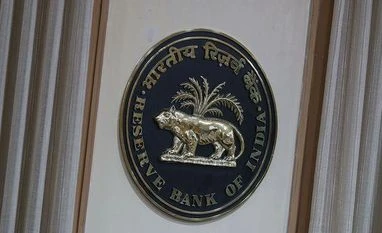They include regulations for BigTechs and fintechs in payments; guidelines on payments involving “Buy Now Pay Later” (BNPL) services; introducing the central bank digital currency (CBDC); and linking credit cards and credit components of banking products to the Unified Payments Interface (UPI).
Titled “Payments Vision 2025”, this document aims to provide every user safe and affordable e-payment options. The activities to be taken up by the central bank up to 2025 have been captured across five anchor goal posts of “integrity, inclusion, innovation, institutionalisation and internationalisation”.
These goal posts have 47 initiatives through which the central bank aims to achieve 10 outcomes, including increasing the number of digital payment transactions three times, the UPI registering 50 per cent annualised growth, Immediate Payment Service (IMPS) and National Electronic Fund Transfer (NEFT) registering 20 per cent growth, and debit card usage surpassing credit card usage.
The central bank expects an increase in the payment transactions turnover vis-à-vis GDP to 8 per cent; increase in debit card transactions at point-of-sale terminals (PoS) by 20 per cent; increase in prepaid instruments (PPI) transactions by 150 per cent, etc.
“BigTechs and FinTechs play an invigorating role in onboarding new users and customizing payment experience. Given their increasingly dominant role in the payments ecosystem, a discussion paper on the need for proportionate regulation by the Reserve Bank encompassing domestic incorporation, reporting, data use, etc., shall be published”, the RBI said.
Further, the document stated BNPL services had developed into a new payment mode alongside the existing payment modes like cards, UPI, and net banking.
“This channel, facilitated by a few payment aggregators, leverages the existing nodal account (escrow account after authorisation) to route payments between a BNPL customer and a merchant. This novel method shall be examined, and issuance of appropriate guidelines on payments involving BNPL shall be explored,” the RBI said.
As far as the digital currency is concerned, the RBI said it was working towards introducing it in India and various use cases would be studied to bring in greater efficiencies.
The RBI will also support the increase in market trading and settlement hours. Currently, the money markets and capital markets operate at fixed hours but the RTGS and NEFT payment systems, which enable settlements in these markets, operate 24x7.
“With a view to leverage the availability of payment systems on a 24x7x365 basis, extension of trading hours of these markets to enable longer market availability for trading and settlement shall be facilitated, in conjunction with the concerned market departments of the Reserve Bank. This shall enhance efficiency and further price discovery in these markets,” the RBI said.
The RBI will seek to create a payments system for processing online merchant payments using internet/mobile banking.
“All merchant payment transactions done using internet / mobile banking are presently processed through payment gateways / payment aggregators. As this practice entails delays in merchant settlements, a framework shall be introduced such that all these transactions are also processed through a payment system,” the central bank said.
To read the full story, Subscribe Now at just Rs 249 a month
Already a subscriber? Log in
Subscribe To BS Premium
₹249
Renews automatically
₹1699₹1999
Opt for auto renewal and save Rs. 300 Renews automatically
₹1999
What you get on BS Premium?
-
Unlock 30+ premium stories daily hand-picked by our editors, across devices on browser and app.
-
Pick your 5 favourite companies, get a daily email with all news updates on them.
Full access to our intuitive epaper - clip, save, share articles from any device; newspaper archives from 2006.
Preferential invites to Business Standard events.
Curated newsletters on markets, personal finance, policy & politics, start-ups, technology, and more.
Need More Information - write to us at assist@bsmail.in
)